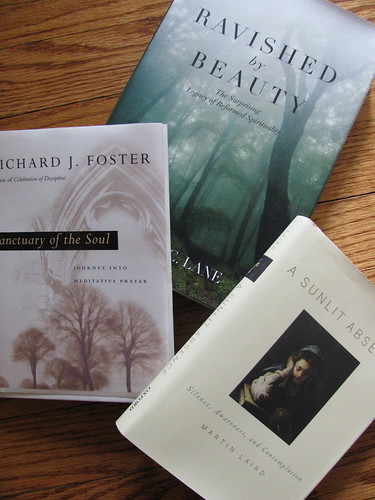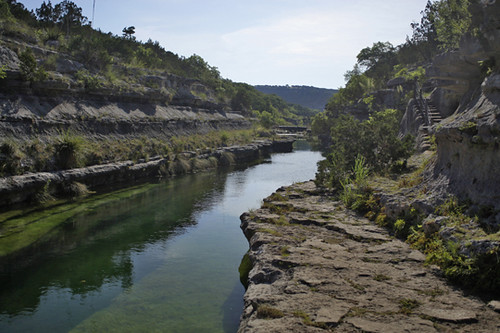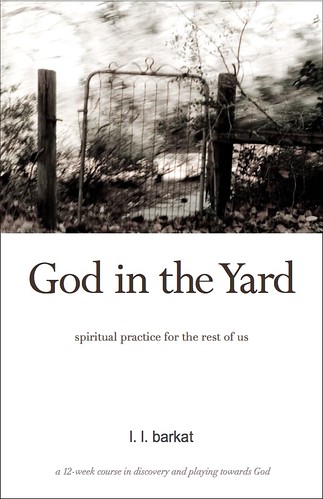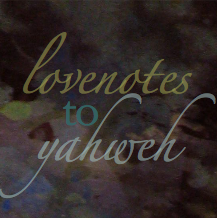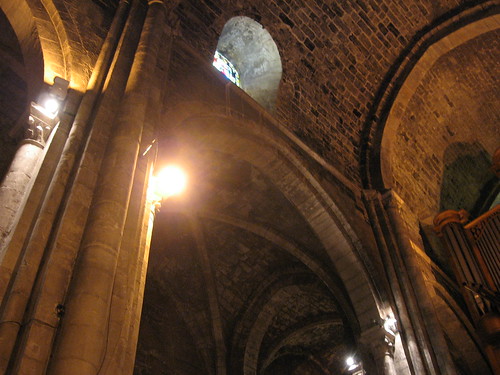One of my favorite children's books,
We're Going on a Bear Hunt, has this refrain...
We can't go over it. We can't go under it. Oh no! We've got to go through it.And then, depending on what the characters are going through—grass or mud or water—a delightful followup sound is inserted, like
swishy swashy, swishy swashy, swishy swashy or
stumble trip, stumble trip, stumble trip.Chapter 6 of
A Sunlit Absence is what I am going to fondly call the Swishy Swashy chapter. Or, if you prefer a little adventure, the going-on-a-bear-hunt chapter.
At one point Laird notes, about a particular woman he uses as an example, "She could not see why this battle with depression and panic should be happening to her. But the pathless path of prayer knows only how to move through struggle; and the only way through is through—not around, over, under, or alongside, but through."
Like many of the stages in this book, I recognized myself in this got-to-go-through-it one:
creative disintegration...manifested in depression, panic, and awareness. I speak of these tender times in
God in the Yard, and looking back this morning, remembering the pain, I wonder if anyone would actually choose this for themselves. Would I have chosen it if I had known?
Sometimes our soul chooses for us. Perhaps because, as Anais Nin has said, "There [comes] a time when the risk to remain tight in the bud [is] more painful than the risk it [takes] to blossom."
Almost laughably, Laird speaks of his example-woman being "pinched" by two events. Laughable, not because it's funny, but because I think of how I opened
God in the Yard saying, "But it's no fun to live with the pain of pinching. That is why I first returned to the woods."
Reading Laird this morning, I also recognized where the path
through leads us. Quoting a Carmelite author, he comes to this: "Let yourself be loved."
Maybe our depression, our anxiety, our panic is ultimately one of fear that we aren't loved. We didn't recognize this fear when we were busy loudly
swishy swashy-ing through the woods. When we sat still, it suddenly overwhelmed and threatened to swallow us.
For me, the beginning of feeling loved came, oddly, through a Whitman poem. It did not take the sadness away, but it was the initiation of a hope that indeed there was a "through," and that on the other side lay Love. This is the poem, excerpted in
God in the Yard... and further excerpted here...
...now I place my hand upon you, that you be my poem;
I whisper with my lips close to your ear,
I have loved many women and men, but I love none better than you.
...
O I could sing such grandeurs and glories about you!
You have not known what you are—you have slumbered upon yourself all your life;
Your eye-lids have been the same as closed most of the time...
The mockeries are not you;
Underneath them, and within them, I see you lurk;
I pursue you where none else has pursued you;
Silence, the desk, the flippant expression, the night, the accustom'd routine, if these
conceal you from others, or from yourself, they do not conceal you from me...
The hopples fall from your ankles...And when the hopples fall from our ankles, perhaps that is when we've made it
through, to Love.
Labels: A Sunlit Absence, depression, Martin Laird, spiritual practice
